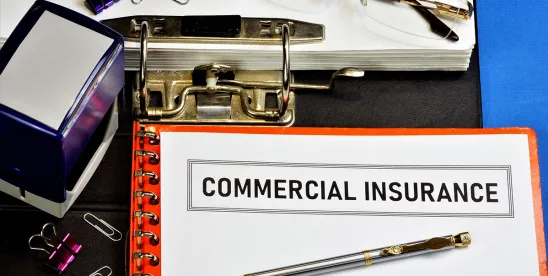The impacts of the coronavirus are far-reaching. Concern about lost revenue, liability for the health and welfare of workers, their family members, and customers remain top-of-mind for all businesses. As a result, many businesses have started to question whether they might have insurance coverage available to respond to this unprecedented situation. Although the analysis of any particular claim for insurance benefits will vary based on the specific language of insurance policies and the circumstances of each case, below is a summary of common insurance considerations in light of the coronavirus pandemic.
LOST REVENUE (BUSINESS INTERRUPTION INSURANCE)
Many commercial property insurance policies provide coverage for financial losses due to business interruption suffered as a result of “direct physical loss or damage” to covered property - often the business’s physical facility. If coverage is afforded, insurance may be available to cover lost net income and operating expenses while operations were suspended.
Whether a property has suffered “direct physical loss or damage” is a potential area of dispute that may vary by state law. Some courts have found that this requirement may be met if insured property is rendered useless or is substantially impaired as a result of certain contaminants. These cases are fact-specific and, in this environment, insurers are routinely taking the position that there is no coverage for business interruption losses attributable to COVID-19 because the virus has not caused “direct physical loss or damage” to property. Secondarily, many insurers are denying claims based on various common policy exclusions, including exclusions for “loss due to virus or bacteria.” These denials have already led to a handful of lawsuits around the country, and it is likely different rules will continue to emerge.
In an effort to address property and business interruption insurance coverage disputes relating to losses attributable to the coronavirus, many states have been proactive in evaluating whether to provide additional protection for impacted businesses. For example, legislators in Massachusetts, New Jersey, and Ohio are evaluating bills that would retroactively require insurance companies to cover business interruption claims to recover losses arising out of government-mandated shutdowns or other claims due to the coronavirus. Rhode Island legislators are considering introducing similar requirements. If, when, and how such measures will be passed and implemented remains uncertain, but they could have a substantial impact on the evaluation of all the coronavirus-related claims in the states enacting such legislation.
SICKNESS DUE TO THE CORONAVIRUS (WORKERS’ COMPENSATION, EMPLOYERS’ LIABILITY, AND COMMERCIAL GENERAL LIABILITY POLICIES)
Many businesses – particularly businesses remaining open during the coronavirus pandemic, have concerns about customers, employees, and their family members getting sick as a result of being exposed to the virus at their business. These concerns raise coverage questions under multiple types of insurance policies.
Sickened workers may be entitled to workers’ compensation benefits, which typically would be covered under workers’ compensation policies.
Customers claiming to have become sick as a result of coming into contact with the coronavirus at a specific business present different insurance concerns. Such claims likely trigger coverage under commercial general liability policies, which cover liability for “bodily injury” of certain people.
If an employee becomes sick at work, it is possible that he or she could also infect family members or others outside of the workplace. Although relatively rare, some businesses have been sued by family members of employees claiming to have been injured as a result of their “secondary exposure” to workplace conditions. Many states have taken the view that such “secondary exposure” claims are permissible and are not barred by the same rules that bar similar claims by employees. Although these claims are for “bodily injury,” typical general liability policies contain exclusions for claims brought by employees and their family members. This creates a potential gap in insurance coverage for businesses.
RECOMMENDATIONS FOR BUSINESS OWNERS
First and foremost, business owners should continue doing their best to protect the safety of themselves, their employees, customers, and the public at large and should continue to comply with the protective restrictions put in place by their state governments. Particularly in light of the uncertainty surrounding insurance coverage for losses related to COVID-19, businesses should take steps to protect their interests in the event they have suffered losses or claims (or potential claims) related to the coronavirus.
Businesses should not automatically assume that business interruption claims will be denied. Although many insurers have taken that position, courts have yet to provide clear guidance, and state governments may enact laws or regulations that impact the coverage evaluation. Therefore, business owners should take steps to preserve insurance claims and document losses attributable the coronavirus. This includes promptly notifying your insurer of any potentially covered loss or claim. In the meantime, collect and preserve documents that might be useful to demonstrate all financial losses due to disruptions caused by the impacts of the pandemic, including documentation of historical revenue and expenses, as well as actions taken to respond to this unprecedented crisis.




 />i
/>i
